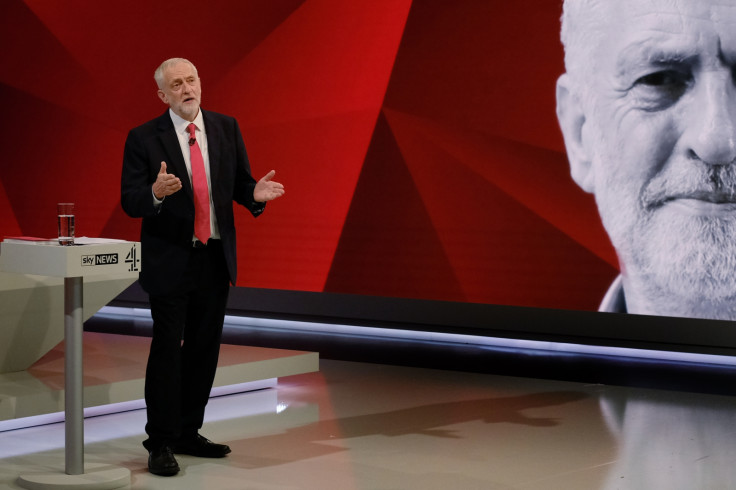Corbyn treats Isis, Hamas and the IRA the same - blaming us for their crimes
There is a paradoxical racism in his view that terrorists are only responsive to Western intervention.

When it comes to international relations, a lot of us think like egocentric teenagers. Everything that happens anywhere on Earth is all about us. War in Africa? Our fault for having drawn the frontiers in the wrong place. Poverty in South America? Our fault for being too greedy. Environmental pollution in Asia? Our fault because – just because!
It is human nature to place yourself at the centre of the universe, and we extend that principle into our geopolitics. Thus, we are simultaneously to blame for intervention and for non-intervention, for toppling tyrants and for propping them up, for opposing Assad and for opposing Daesh. The only constant is that It's Always Our Fault.
It is to this strain of teen narcissism that Jeremy Corbyn appeals when he blames terrorism on British foreign policy. The conventional thinking is that victim-blaming is unwise at the best of times and, in the aftermath of the Manchester abomination, potentially calamitous. No one wants to hear "I condemn terrorism, but..." while doctors are still treating people lacerated by nails and shrapnel.
Perhaps the Labour leader is trying to shore up his core vote. I happened to be in Spain at the time of the Atocha bomb in 2004 – an atrocity which also came during an election campaign that the Centre-Right party had seemed certain to win. The almost unanimous assumption of Spanish pundits was that the massacre would make the Partido Popular's victory even more emphatic, since political violence tends to push voters, first, to the incumbent and, second, to the Right – which, at that time, meant the same thing.
In the event, though, something very different happened. The crowds that took to the streets after the bomb were full of young anti-war protesters. José María Aznar was blamed for having backed the Iraq invasion, and so having made his country a target. In a moment of collective funk, Spain voted for his saturnine socialist rival, José Luis Rodríguez Zapatero – who was literally speechless with astonishment as the results came in, having prepared no victory speech.
It is possible that Corbyn is hoping for a similar rise in turnout among angry anti-war types. Frankly, though, the likelier explanation is that the old boob is – to his credit, in a way – saying what he thinks, regardless of the electoral consequences.
After all, the one constant of Corbyn's political career is that It's Always Our Fault. We can argue about how much he actively supported the IRA or Hamas. But one thing is beyond argument. At no time has he ever held them responsible for their actions. There is, indeed, a paradoxical racism in his world view. The gunmen – Palestinian militants, Irish Republicans, even Daesh torturers – are treated as a listless mass, incapable of initiative, responsive only to Western or British intervention, lacking independent agency. ("None of us are in favour of what Isis are doing, but...").
What makes Corbyn unusual is not that he makes everything all about us, but that he finds us always and everywhere to be at fault.
As I say, Corbyn's is merely an extreme form of a universal human trait, namely our tendency to assume that we are the fulcrum of events. We rate other people partly by how useful or inconvenient they are to us, rather than by a purely objective measure of their qualities. We sometimes do the same to inanimate objects, shouting "Don't do this to me!" as our laptop freezes. We even anthropomorphise nature.
Our remote ancestors assumed that floods and droughts were somehow caused by human wickedness, and might be mitigated by sacrifice. Our own view of climate change is not so very different.
Political solipsism, in short, seems to be our natural condition. What makes Corbyn unusual is not that he makes everything all about us, but that he finds us always and everywhere to be at fault.
Still, let's just consider what happened in the case of Salman Abedi, the Manchester murderer. Far from mistreating him, we took his family in as refugees from Gaddafi's Libya. We then removed the tyrant who had exiled them. Now you can argue for or against the intervention in Libya: there is a respectable case either way. But you can't seriously argue that it gave Abedi a legitimate grievance against Britain. On the contrary, he had every reason to be grateful to the country that had given him refuge and freedom. He chose to repay us by murdering some young girls as they excitedly left a pop concert clutching pink balloons.
And yet, for an awful lot of angry anti-colonialist types online, it is still somehow our fault. It always is. A Briton's place is in the wrong. Those self-centred adolescents – not all of whom are literally adolescents, some of them having never outgrown their teenage angst – now have an authentic champion as leader of one of the two main parties. What would it say about the rest of us if he won?
Daniel Hannan has been Conservative MEP for the South East of England since 1999, and is Secretary-General of the Alliance of European Conservatives and Reformists. Follow : @danieljhannan
© Copyright IBTimes 2025. All rights reserved.




















